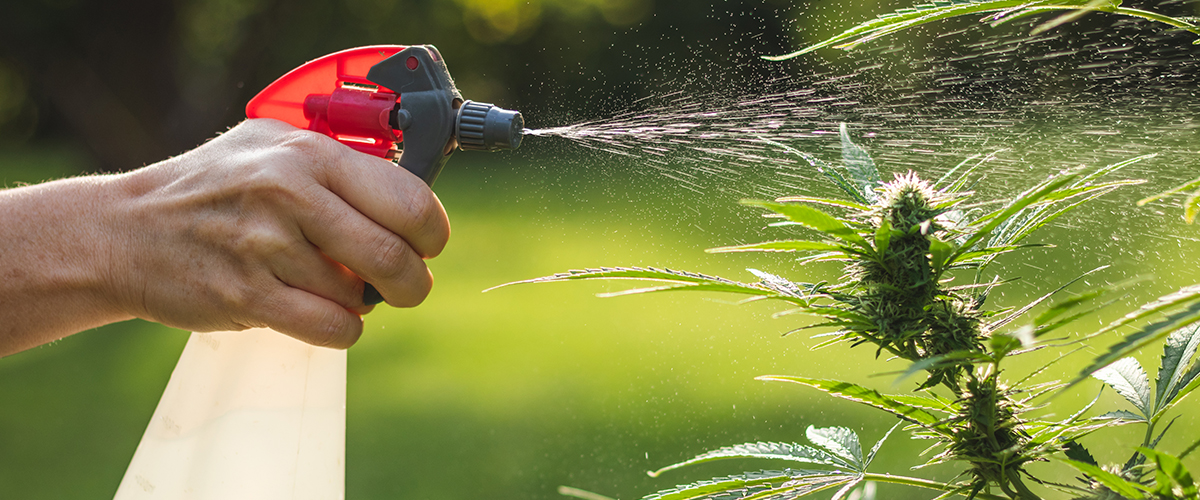The U.S. Environmental Protection Agency has approved 10 pesticides for hemp ahead of the 2020 season and called for public feedback on one proposed controversial herbicide, atrazine.
While the United States Department of Agriculture is in the process of clarifying regulations on hemp, the Environmental Protection Agency has streamlined the process of approving pesticides for the 2020 hemp farming season.
“EPA’s actions today help support American farmers’ efforts to grow hemp just in time for the first growing season,” stated U.S. Secretary of Agriculture Sonny Perdue in a Dec. 19 news release.
The EPA’s quick actions are intended to give growers certainty for the next pesticide spraying season in 2020 and to make offer time to make purchases ahead of time. The agency noted that nine of the pesticides are biopesticides and one is a conventional pesticide.
While the list of 10 pesticides has been officially approved after considering public comments, the EPA now seeks public feedback on additional potential pesticides. The EPA issued a proposed interim decision on the herbicide, atrazine, including lower use rates and new label requirements. The proposal is part of the EPA’s re-registration review of the herbicide.
EPA will be taking comment on its atrazine, propazine, and simazine proposed approval decision for 60 days after publication in the Federal Register.
“Comments can be made to the following dockets EPA-HQ-OPP-2013-0266 (atrazine), EPA-HQ-OPP-2013-0250 (propazine), and EPA-HQ-OPP-2013-0251 (simazine) once the Federal Register notice publishes online,” according to the news release.
The EPA’s approval of atrazine has proved to be controversial in the past, leading to risk assessments and prior calls for public feedback. A study from Cornell University found that atrazine “is slightly to moderately toxic to humans and other animals.”
The herbicide can be absorbed into the bloodstream through oral, skin and inhalation exposure. The Cornell Atrazine study found exposure symptoms include abdominal pain, diarrhea and vomiting, eye irritation, and other possible skin reactions.
The Center for Biological Diversity found atrazine to be the second-most widely used pesticide in the nation. According to the center’s report, atrazine has been banned in Europe and found to cause “reproductive harm to mammals and birds in real-world scenarios.”
Bees and Hemp
The EPA’s announcement comes after recent studies showing the impact bees and hemp could have on agriculture. Scientists from the study Colorado State University study called for an integrated pest management program to protect pollinators.
Researchers from Cornell University indicated in a new study published this month that as “hemp cultivation increases, growers, land managers, and policymakers should consider its value in supporting bee communities and take its attractiveness to bees into account when developing pest management strategies.”
More on Hemp
Hemp is a dynamic industrial crop that can be used in a variety of ways including paper, textiles, bioplastics and biofuels.
Due to the onset of the “War on Drugs,” hemp production was banned in the U.S. until 2014 with the passage of the U.S. Farm Bill. Hemp production in the U.S. began to increase under the new bill which allowed for hemp cultivation along with pilot research programs.
Hemp was then completely removed from the federal list of controlled substances with the passage of the 2018 Farm Bill last December, allowing for commercial production and making hemp an official comeback crop.
More than 40 states have since passed laws to revive the versatile hemp crop within their borders.
Hemp Industry News
Find more news developments from the hemp industry, including the latest in policy, business, and scientific research, by visiting our news page.






